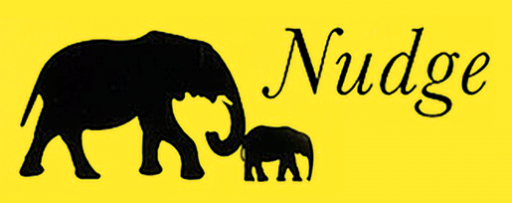You never count your money, when you’re sittin’ at the table.
– Kenny Rogers (The Gambler)
The application of behavioral discipline as outlined in Kenny Rogers famous quote above can make us better investors.
Dr. Richard Thaler’s book Nudge shines a practical light on the often arcane subject of economics by looking at the differences in behavior between his “Econs”, the perfectly rational, hyper-reflective beings present in all economists dreams, and the rather more pedestrian “Humans”. It’s an important book for a variety of industries, but maybe none so much as finance and investing.
Our investing research and decision process at IOI is intended to be a hallmark of “Reflective” or “C-System” thinking – attempting at once to learn all that we can about a business and know what we don’t know.
Nudge is an opportunity for us to look for ways in which all of us, as investors, can improve how we decide to invest by incorporating what Thaler and his colleagues have learned. Here are just a few suggestions for your process!
- As Humans we can be overly influenced by short term fluctuations in market behavior and/or the price of a single investment position. Having a valuation range understanding helps us to cope with our urges to act on our fears. A valuation range gives you a roadmap to how a company’s ability to create value for you as a shareholder is changing. So, if a position is suffering on price, but the Company is making money in the way you thought they should, then you can rather safely sit out the panic. The wrong time to make a decision about how to manage a position is while you are sitting in front of an active pricing screen (“…while you’re sittin’ at the table”).
- Give yourself a thoughtful, repeatable feedback mechanism for your performance. Proper feedback means knowing first what your goals are, then setting up some metrics to measure them and finally tracking your performance against those metrics. Do this with your investment portfolio – in a spreadsheet or a notebook or whatever. You can do this for a total portfolio as well as a single investment position. Take your time, write it down and then track it. Having the right data on the right goals nudges our investment decisions in the right direction.
- Seek to put structure around your complex decisions. As an engineer by training this is perhaps my favorite bit of counsel from Thaler. He’s so right. Even complex emotional decisions can be aided by applying structure. Well reasoned investment decisions are about getting the right data in front of us with the appropriate weight applied to each piece of it. So, this is our challenge – to provide for ourselves a structure in which to look at the data available to us. IOI provides a series of helpful models for assessing value, looking at market pricing in a variety of helpful ways and considering leverage and risk. Use them! Then set up the results from these models in a way that helps you look at all the data together so you can use it. Need help with this, just come to IOI’s forums and ask or reach out to us directly.
I want to close with the last paragraph Thaler writes in his chapter entitled “Naïve Investing” (emphasis and notes mine).
“Forming and managing an investment portfolio over a long period of years [something most of us are already doing by the way] is difficult. Most firms ask a team of experts, helped by outside consultants, to perform this task for the assets they manage. But individual participants typically undertake this task on their own, or with the help of a co-worker or relative who may have intuition but lack training for the job. The end result is similar to what might be expected if most of us tried to cut our own hair – a mess. Most people need some help…”
I include this not as a provocation to doing it yourself, but for all of us to remember that investing successfully is a challenge, but one that can be met with education and continued practice.
Ideally, this practice is aided by strong mentoring and community relationships that seek to strengthen what you are doing. That’s what we’re about at IOI – developing just such a place for highly engaged investors to get better at their craft.
Oh, and we urge you to pick up a copy of the book. It can change how you think about and perceive the world around you. It will also do wonders for your empathy toward our fellow “Humans”!
Invest Intelligently…

